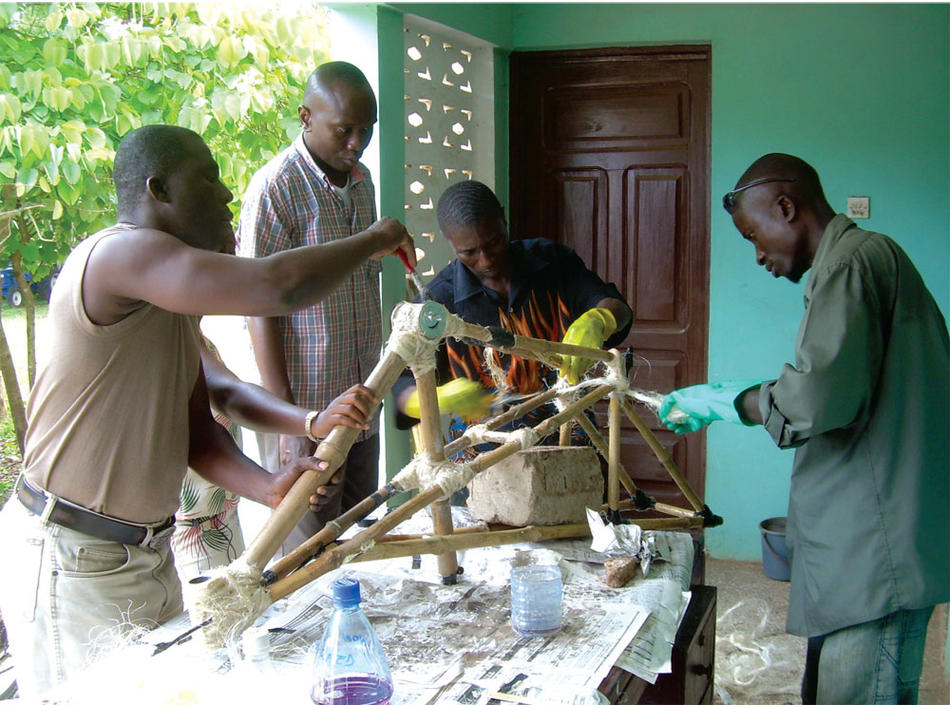Cycling is the most popular means of transportation in rural Africa. The problem is, the aluminum bikes shipped in from China and India are too flimsy; Africans want to be able to carry on their bikes farm equipment, heavy jugs of water, and passengers.
Columbia earth science professor John Mutter and geochemistry researcher David Ho say they have a solution: Africans could build slightly larger, tougher bicycles out of bamboo, sisal, and other organic fibers, and save money in the process. Bamboo, which is lightweight and surprisingly sturdy, grows throughout sub-Saharan Africa. That presents a lucrative business opportunity for locals, Mutter and Ho say, and a chance to improve quality of life across the continent.
In June, the two men traveled to Accra, Ghana, with friend Craig Calfee, a premier American bicycle maker, to show craftsmen how they could build bamboo bikes Calfee designed for them. No power tools are required, so villages without electricity could produce them.
"Hey, I can make one of these!" was the reaction the scientists kept hearing, they say, upon demonstrating the building process to Ghanaians. All that's required to make the frame is bamboo, sisal fibre from agave plants, glue, epoxy, and ordinary hand tools. Steel components still need to be imported, and even bamboo bikes will be costly for locals. But at roughly $90, they'll be at least 25 percent cheaper than conventional bicycles.
Mutter and Ho, whose project got seed funding from Columbia's Earth Institute, are trying to convince humanitarian groups and U.S. government agencies to susbsidize local efforts to build and purchase the bikes. Meanwhile, Ghana's Ministry of Lands, Forestry, and Mines is encouraging the formation of local bike manufacturing businesses. "The bicycle isn't the ultimate solution to poverty in Ghana," says Mutter, "but we hope it could help in a significant way."



